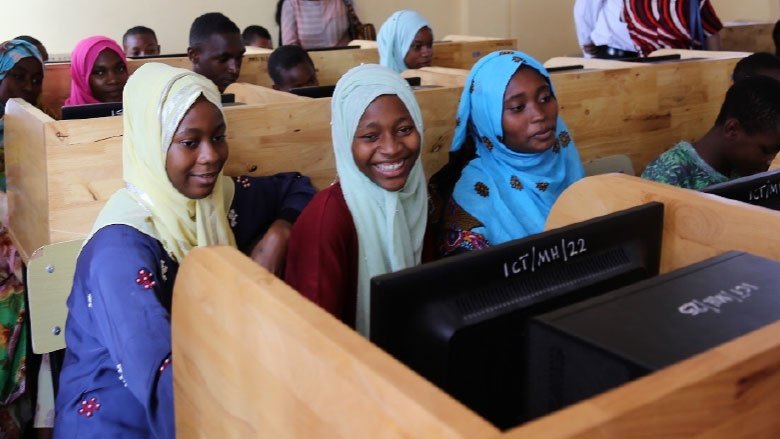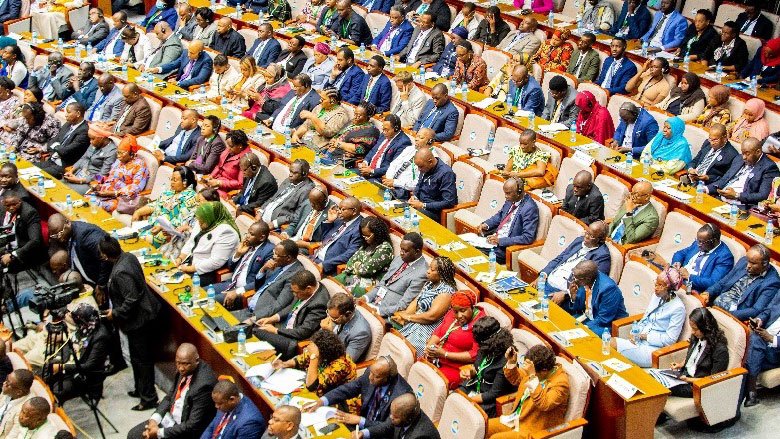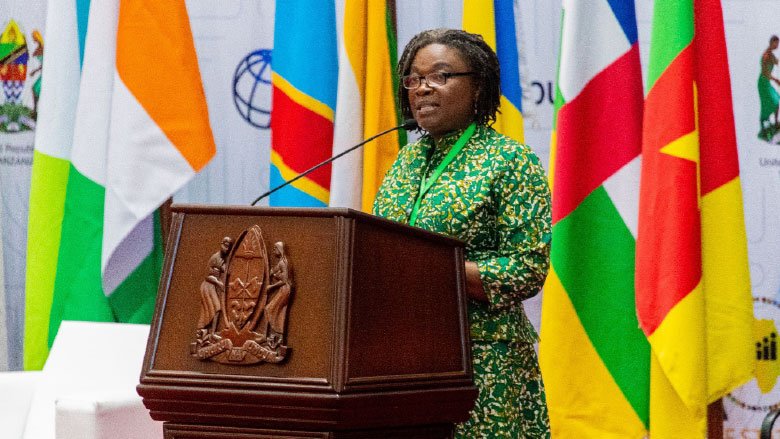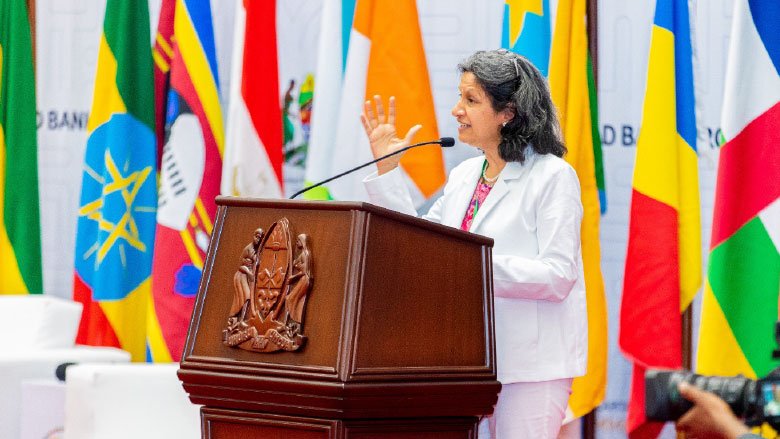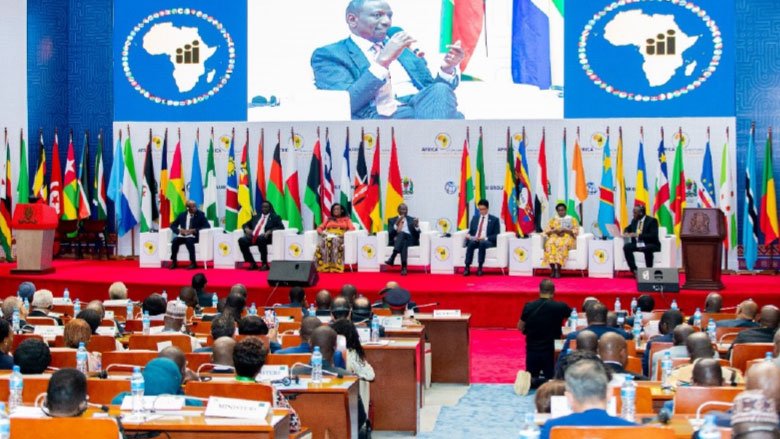“We need the means for our dreams to come true.” –Hafsat Abdullahi, Nigerian poet
Dar es Salaam, Tanzania recently bustled with immense energy and optimism. The ambitions and aspirations of young people were matched with commitments by African leaders to take action and invest in people toward a brighter future.
The Africa Human Capital Heads of State Summit brought together 18 Heads of State, Heads of Governments, and Ministers—representing 43 countries. They were joined by eminent thought leaders, development partners, and inspiring young artists. Gathered in front of an audience of more than 1,300 people, they responded to a resounding need to supercharge Africa’s economic growth by committing to making more and better investments in their young people.
Today, Africa is the only continent where 70% of its people are under the age of 30. By 2035, over 400 million young people will enter working age.
“There is strong awareness that we have a challenge,” Victoria Kwakwa, World Bank Regional Vice President for Eastern and Southern Africa said in an interview at the summit. “We have to really rise up and accelerate progress to get human capital built on the continent.”
The Dar es Salaam Human Capital Declaration of 2023 (pdf), endorsed by leaders representing 43 countries at the summit’s closing, commits governments to prioritizing ambitious investments in people with specific targets in health, education, and job creation. Supported by increased resources from countries and development partners, targets include reducing learning poverty by at least a quarter and improving literacy rates to reach 75% by 2030.
Despite encouraging examples of progress made across the continent, Africa faces human capital constraints. Nearly 100 million children remain out of school and are not prepared to learn, lacking sufficient nutrition and stimulation. And too many students that are attending school are not learning. Learning poverty—the inability of 10-year-olds to read and understand a simple text—is nearly 90%. The continent’s human capital index score is .40, which means young people are forgoing 60% of their productivity potential.
“There is going to be an increase in the population of young people and if their energy and capabilities can be harnessed then it opens up this huge opportunity for the continent,” said Mamta Murthi, World Bank Vice President for Human Development, in an interview at the summit. “There needs to be more investment in young people. They need to be well educated and there needs to be the kind of investment that creates jobs so that these young people with skills can be employed. More than resources, this is going to require political commitment.”
During the summit, participants recognized the challenges in prioritizing human capital amid fiscal constraints, fragility, and other challenges, but agreed on the importance of education and health— cornerstones of human capital.
“The issues should be looked at holistically because they are all interlinked,” said Kwakwa.
Discussion at the summit focused on improving the quality of instruction with a focus on reading and basic numeracy, as well as teacher training and more emphasis on secondary school completion, especially for female students. Strengthening the connection between education systems and labor markets was noted. Investments to support access to quality healthcare, nutrition, and stimulation are also key so that children are prepared to learn. Rwanda’s community-driven model of educating low-income parents on caregiving, nutrition, hygiene, and stimulation was cited as one example of an effective and low-cost initiative supporting early childhood education.
“We must do more on human capital, we must put more resources in,” said Kwakwa. “The realization that we need to spend more is an important one, but it’s not just spending more, it’s spending more efficiently and effectively, because you can put more money in, but if it’s not doing the right things and not being used with maximum efficiency, the results will not show.”
Participants recognized that realizing the potential of Africa and achieving the goals of the Dar Declaration will require everyone to do their part: governments taking leadership and making bold policy choices, the private sector working to provide skills and create jobs, civil society to drive momentum for change and ensuring accountability, and donors and partners helping mobilize resources and providing technical support.
"Developing human capital is not for the faint of heart or for the impatient,” said Kwakwa, “We need a long-term perspective, and we need boldness.”
The Africa Human Capital Heads of State Summit was hosted by the Government of the United Republic of Tanzania in partnership with the World Bank. The Summit was also supported by the Bill and Melinda Gates Foundation, The Global Financing Facility, the Government of the Republic of Korea, and the Mastercard Foundation.
